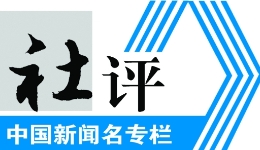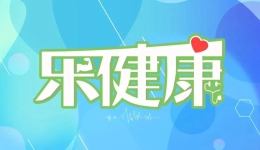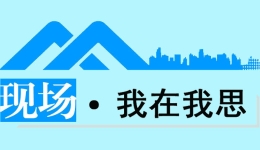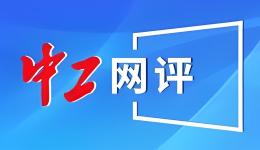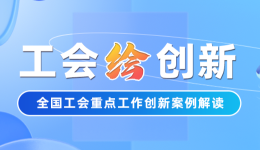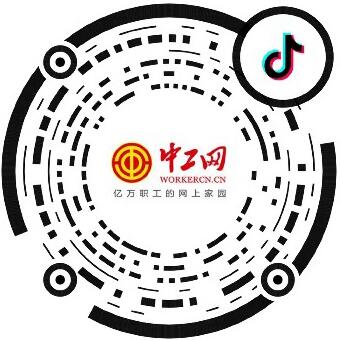Original title: "Another kind of education" I saw
Pei Sitong
As a "small town writer", I always have a complex feeling about the education I have experienced in the past. On the one hand, I am grateful for its tempering and accumulation; On the other hand, the day when I got up early to read and write questions in black has imprinted on my heart, making me think about whether it is possible to have another kind of education.
At the end of 2023, I focused on the "moon school". This is a young and innovative school, which implements the elective system and project-based learning, mixed age teaching, no standardized examination, and advocates free and personalized learning. In the past seven years, it has expanded from a high school attached to the teaching building of the middle school attached to Peking University, with only 30 students, to a private non-profit school with more than 500 students, which has been approved by the Chaoyang District Education Committee of Beijing, and has been established for 12 years.
In the past 20 years, such innovative schools have emerged in large numbers around the world. Their specific patterns are different, but they all intend to explore more possibilities for future education. Some educational reformers believe that the standardized education model, which continued in the industrial revolution, has been unable to meet the demand for creative talents in the digital era.
I came here to see another possibility of education. But what I finally felt was more complicated reality that I had to face when the surging educational ideal came into being.
Different schools
When I first stepped into the school, it was about 3:00 p.m., which was about the time when most middle school students in China had the second class in the afternoon. However, many students had finished their one-day courses and scattered around the campus. Some people write programming code in front of the computer, others paint in front of the canvas waiting for their height. At a glance, the boundary between students and teachers is not so clear. Everyone dressed differently, looked the same young, called each other by their first name, and talked casually.
The school is located in the ring stadium of the Olympic Forest Park, where it feels like entering a science and technology innovation company. There are posters and graffiti with strong colors everywhere. If you open a door, you may see a design studio, or you may enter a "maker space" full of drills, hammers and glue guns.
During the visit, I often think of my middle school. Wake up in the dark, read early, run exercises, and bury your head in books in the classroom. At the moment, opposite me, in the semi open classroom, a dozen students are sitting around the table holding computer groups, while the teacher sits cross legged on the ground at will.
It is hard to imagine that Wang Xiqiao, the founder of such a school, was only 20 years old when he decided to establish the school, and Yang Zhiyong, another founding member, has not graduated from high school. In 2017, when the Internet entrepreneurship boom was rising, a lot of "hot money" poured into the education field, but most of it went to the education and training industry with a clearer profit model. In order to raise funds, Wang Xiqiao met many investors, but most of them only took him as a child and said, "Your idea is very good, but it is too advanced. Finally, Wang Zheng, former president of the High School Affiliated to Peking University, and Wang Jianli, director of the Education Development Foundation of Kunshan Duke University, supported his idea and helped him solve the problem of space and funds.
A girl named Xu Yuxiu told me that she had changed three schools because she could not stand the high pressure learning environment and strict rules and regulations. The girl next to her couldn't help complaining. Previously, the head teacher stipulated that students should not go to the toilet together, throw garbage in the garbage can in the classroom, talk in the classroom after class, and stay in the corridor for more than two minutes.
But why are parents willing to send their children to a school founded by "high school students"? The answer of the founding members surprised me. It seems more like that parents with new ideas about education found them than that they were deliberately looking for parents.
In January 2018, when the school held the first parent construction meeting, only about 10 parents participated in it, "many people were dragged here". The founding member Yang Zhiyong remembered that at that time, parents were not so much choosing schools as looking for a place to discuss educational ideals. On the same day, parents sat together and closed their eyes to remember: "When the children were just born, what was our best expectation for them? What was the change in the current life and then expectations?" Several parents turned red in memory.
Later, although most parents did not choose to enter this school, they helped spread the concept of the new school. Slowly, more parents gradually found it.
When Qin Ningwei from Xinjiang decided to send her daughter to this school, her daughter was overwhelmed by her studies in a key junior high school. She wrote homework until one or two o'clock in the morning every day. She is determined to take her daughter to the existing environment and drop out of school on the eve of the high school entrance examination under the pressure of the whole family, so as to prepare for the entrance examination of the innovative school.
More than ten years ago, because she could not find a school that met her expectations, she simply quit her media work for more than ten years and founded a kindergarten for her daughter.
Qin Ningwei is a microcosm of school parents. Most of them have high education and are entrepreneurs. There are also executives from well-known enterprises, professors from top universities or wage earners who need to bear the tuition. Yang Zhiyong said, but they all hope to explore more about future education. "They all know that the most important thing in the world is not education, but ability.".
At the same time, letters from all over the world also poured in to Zhang Chunyan, the development director of the lunar exploration organization, and many people volunteered to work in the school. The first employee she recruited was Wu Size. When most people were busy making money after graduation, the young man went to remote mountainous areas to volunteer for three years alone. Later, he opened a hot and sour powder shop and returned to the mountain every year to subsidize the children with the money he earned.
Another teacher who impressed her was Jaguar, an American. He was a "gifted teenager" who received elite education at MIT. After experiencing a high-pressure learning environment, he assembled a motorhome for himself, drove to the forest alone to read philosophy and think about the possibility of human future education. When Zhang Chunyan met him for the first time, he was traveling in China. In winter, he wore short sleeves and hollow shoes, and his hair was like a lion, "full of unique vitality". He was soon attracted by the school, "no matter how much salary you pay", and only wanted to practice his educational ideas.
The origins of the first group of school staff are mostly so diverse. They include teachers who teach in famous schools, public artists, investors and even actors and explorers.
On August 25, 2018, in a small teaching building of the High School Affiliated to Peking University, such a group of teachers started school with more than 30 equally "diverse" students.
Limited liberation
At first, the school was like an enclave to practice the ideal of education. Everyone was determined to "change the whole educational ecology within 10 years" and move the campus to Silicon Valley.
They directly handed over all subject courses to the online "Khan Academy", "because we think the school should be a big supermarket, and the best educational resources have been online." Yang Zhiyong recalled.
Offline, teachers mainly lead students to do two things. One is "metacognition", that is, to help students explore themselves through philosophical discussion or meditation. The second is to lead students to do various projects, such as "making driverless cars", "harnessing Beijing smog", or building a "handmade space" from scratch. Some students said that the school at that time was like "a summer camp that will never end".
But soon, the founding team felt something was wrong. They thought that "students will answer questions with various questions every day". In fact, "most students will only play" Glory of the King "in the study room".
Yang Zhiyong remembered that Yang Boyu, who was responsible for the research of the teaching system, once became a "teaching director", whose main task was to catch students playing games. Once, when Yang Boyu was making an inspection tour in the evening, he saw that there was a lot of noise around. Only one "Xueba" from the Affiliated High School of Peking University was sitting alone in the corner, holding a book and self-study in front of the computer.
"If students who love learning so much are isolated here, or even have no access to learning resources, then everything the school is doing is in vain," Yang Boyu said.
This also made the parents who had been very supportive of the school's educational exploration start to worry, and some parents are clamouring to quit school.
In the second semester, the school carried out a thorough reform, re launched offline subject teaching, and integrated "project-based learning" into the subject curriculum, which is also the international mainstream curriculum reform direction.
The most famous educational theory of the educator Dewey is "learning by doing", that is, learning is placed in a real situation to link the acquisition of knowledge with specific practice. For example, in a math class in this school, in order to learn "Pythagorean theorem and trigonometric function", the teacher asked students to take a protractor, triangular plate and tape measure to measure "how to safely explode the light blocking barrels in the campus"; In geography class, in order to learn about marine pollution, the teacher took the students to the river bank near the school to pick up garbage for many days, and then thought about "how to place garbage cans to maximize the effect of reducing garbage into the river".
Some social science courses focus on speculative discussions. For example, students will think about "the meaning of being Chinese" in history class; Discuss "how to choose the two orientations of Confucianism and Taoism" in Chinese class; We will also explore "how human activities on the coast of Hawaii lead to coral bleaching" in academic seminars.
At the same time, the school canceled standardized examinations. Hirsch, an American educational theorist, believes that standardized examinations will introduce unfair competition, make students study only for scores, and ignore students' growth in the process. The lunar exploration school usually ends the course with "project", and will give students the opportunity to feedback and correct before the final end of the course, hoping to reduce the "consequence theory" and emphasize more on the evaluation of process and growth.
A teacher once made a similar curriculum reform in a public middle school, "but the trial and error cost of students in the public system is high". Project based learning returns the initiative of learning to students, which is bound to require more waiting time. Although teachers believe that it is helpful to cultivate the underlying ability, it is far from the most efficient way for exam taking. The students of the lunar exploration school mainly study abroad, which to some extent gives teachers room.
However, project-based learning has higher requirements for both teachers and students. Liu Jian, president of the Innovation Education Research Institute of Beijing Normal University, once carried out the "project learning regional reform" for more than 10000 junior high school students in five regions of the country, and finally found that only the students who had experienced "high-level project learning" had their key literacy improved. Like the children who had experienced "low-level project learning" and "no project learning", a large number of literacy indicators were declining.
Especially for innovative schools, it is difficult to ensure that teachers have long-term teaching experience like public schools while paying attention to teachers' innovation and richness. In actual teaching, students reflect that the level of teachers is uneven, sometimes the curriculum design is not mature, "a little formalism.". The teachers were frustrated that the carefully designed curriculum content could not always arouse the enthusiasm of students. "Sometimes students will be more adaptable to mechanized examination".
Another disappointing thing for students is that although they are separated from the college entrance examination system, "entering a higher school" is still their important task, and they still have to face the TOEFL, SAT, AP and other exam oriented tests. Children hope to get rid of the pressure of "endorsement and question writing" under another education system, but what they finally achieve is still a "limited liberation".
The Middle Way of Education
But education doesn't just happen in the classroom. During the interview, the students repeatedly stressed to me that they value education more, often outside the classroom.
When Guo Xuzheng, the moon exploration teacher, worked in a public middle school, one student used to do very big movements when doing radio gymnastics to fully exercise. Later, in order to meet the inspection, the school arranged the student to do exercises in the hut alone to ensure the tidiness of the team. "Through this, you will find out how our children may be treated when they are different in school," said Guo Xuzheng.
"Freedom" is something that students always want to defend. For a while, with the expansion of the scale and the relocation of the campus, the lunar exploration school began to increase rigid control, gradually having access control, class standards and leave approval. Some students drew graffiti on the wall and opposed it. They also split into two schools with different views. Some students even dropped out of school in disappointment in this process.
However, from the perspective of the school, proper management is still necessary, otherwise it is just from one extreme to the other. Many educators believe that "the future of education is not at both ends, but in the middle", but how to reach the "between" state requires a longer run in and thinking.
And this "freedom" is not only about "not being controlled", but also about self exploration.
In order to encourage students to explore themselves, students need to introduce the university they want to apply for in the school's internal entrance defense. They will not pass the defense only because of "high ranking". The school hopes to force students to exclude "utilitarian choice" by this way.
Self cognition oriented courses have always been a compulsory course for the school. At the same time, the school will invite teachers, parents and school cleaning personnel to share their life experiences for the students. The purpose is to tell the students: "Life is so different, not only to brush questions and win first can survive."
Teachers also try to respect students' original personality. Cui Maoran was a student who impressed me deeply in the interview. He was once a well-known "prick" in the school, playing truant and openly challenging teachers. But what surprised me was that he didn't punish him for this, and the teachers wanted to listen to the real thoughts behind his behavior. An English teacher who was attacked by him tried to customize a personalized course for him, and allowed him to change classes. "He didn't think it was my problem, but he thought I was a certain opportunity on his way to education.".
But at first, this atmosphere once made Han Yucen, a student, miserable. Looking at her classmates full of personality and ideas, she could not find anything that interested her. In the past, few people asked her "what do you like". She felt that she only needed to "take a good exam of every subject", study and enter higher education step by step according to the path of most people, and "lead a life without choice".
This is also a challenge for many children when they first enter school. Some students believe that this school is not suitable for everyone, and may be more suitable for students with active thinking and strong initiative. However, Qin Ningwei, a parent who is also engaged in innovative education, told me that students are more likely to fail to plant relevant "seeds" in the past education than to be naturally unfit for such education.
Chen Wen, a teacher who teaches academic seminars, also said to me that one of her major difficulties in teaching is that children who are accustomed to exam oriented education are always difficult to put forward their own questions and opinions after entering school. In the school, there were also students who dropped out of school because they could not adapt and returned to public schools or more traditional international schools. The children who can stay have grown up in different ways in this kind of education.
Although most students still apply to famous schools in the traditional sense, some choose art schools, liberal arts colleges or innovative universities. Many other students will enter the "gap year" when they graduate to explore themselves: some people live in sojourns and set up stalls; Some people go to county-level middle schools to support teaching; Some people choose to start a business after receiving three admission notices from famous universities, because they think that "there will be no shortage of people who can write standard answers in the future society".
Many students feel a certain gap after graduation. In school, they are encouraged to become "idealists", but when they go out, they find that more people are discussing "concrete reality". Han Yucen chose to graduate early in his sophomore year of senior high school and enter a liberal arts college in the United States. This college has no specific professional courses and only needs to read more than 100 social science books in four years.
However, after entering the school, she found that many people were "transferred" because they had not applied to the ideal school, complaining about "why should we learn these books that were eliminated hundreds of years ago", rather than "algorithms, AI, these things that keep pace with the times". But she always felt: "Education should not be utilitarian."
The future of inclusive
It is hard to deny that there is a foundation of family wealth behind this kind of education. With a tuition of 200000 yuan a year, the threshold of this kind of education is screened out. This also makes me want to know whether this is only a choice for some students, and what significance does its existence have for a greater educational ecology?
Seven or eight years ago, when innovative schools began to emerge, people expected them to act as some kind of template to leverage wider changes. But in fact, many innovative schools can only say that they have just solved the problem of survival, which is still far from their expected educational goals.
In 2022, in order to solve the problem of school running qualification, Tanyue took over Qingsen School, which was originally managed by the High School Affiliated to Tsinghua University, and became a K12 school from primary school to high school. Not all new entrants agree with this concept.
Zhang Chunyan, the person in charge of the development of the lunar exploration organization, remembered that a foreign teacher who "dressed in suits and shoes" all day long asked her to resign because she could not accept the free and casual atmosphere of the school and hoped to go to a more "traditional and elegant" international school. One day, when talking to the teacher in the canteen, a student who has always been bold was rudely threatened by a foreign teacher: "If you talk to the teacher like this again, I will press your hands against the wall and call the police."
Once, everyone felt that the school was like a community, and almost everyone knew each other very well. But now, after graduation, Han Yucen has received help from younger brothers and sisters because they don't know who to look for when they encounter difficulties in school. Han Yucen was shocked by this: "I used to walk in the school building, and I could talk to a mentor no matter who he was."
In the mind of the first student Wang Qiuyang, this is a school that "at the right time, a group of idealists just got together and built".
In a small community of only one or two hundred people, they jointly guarded their educational ideals. When the community has to expand to accept more people's tests, how to absorb the same educators and maintain the original state of the community has become a new dilemma.
With such confusion, I found Tao Qian, the teacher who explored the Moon "Educator Development Center". In the past few years, he has been engaged in education inclusive work, trained hundreds of teachers, and cooperated with many schools and government departments to implement curriculum reform. He told me that innovative education is not only the patent of innovative schools, but also can be practiced on various campuses. The difference is just "the size of granularity".
For example, teachers can spend several months on a complete project, or they can do an independent task in a class or a knowledge block; Even children in rural areas can make full use of the natural resources around them to explore. As the first psychological teacher of No. 1 Middle School in Xuanwei, Yunnan Province, Dong Jing recently led the children in villages and towns to complete a project-based learning in one semester to help students make cognitive planning for themselves and their career.
Jiading Liuyun Middle School affiliated to Shanghai University tried to carry out educational transformation under the leadership of President Chen Xiao. The school conducts unified project-based teaching training for teachers and develops landing teaching tools. It is difficult to break through the examination requirements of the subject curriculum, so the school takes the junior students as the main target, and implements the reform of project teaching in art, music and other courses.
"So even if it is difficult to break through the structure, there is still room from the perspective of teacher practice," Tao Qian said.
Education has always been a complex topic. There is no single answer, only constant exploration.









